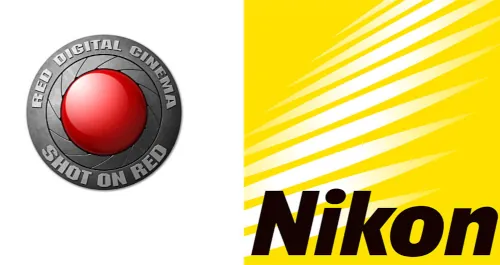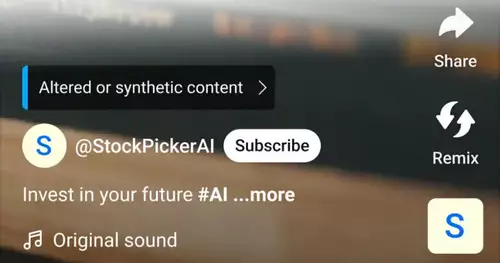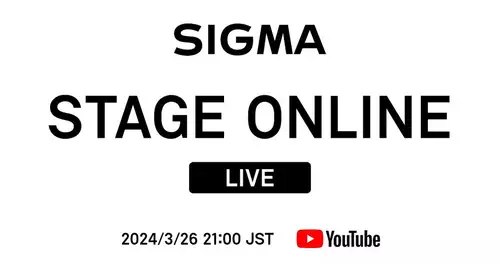Newsmeldung von slashCAM:Hier geht es zur Newsmeldung: MPEG LA patents against Google collects VP8/WebM
Antwort von Kabe:

Well, the move was predictable. The MPEG LA has these patents long, the call is only s.ihre members WebM to check for collisions. As will be synonymous with the Width of the portfolio are sure to find some.
Antwort von wenzx:

Well just figures.
I think the only really free codecs, the codecs will be wavelett.
FFV1, Snow, Dirac, etc.
If yes, perhaps even synonymous NEN worth about which codecs are all under open source license, synonymous or those who rely on methods that are not patented.
Antwort von Replay:

But where is Dirac extreme demands s.die hardware.
Antwort von ThomasKluge:

And then the next message relating to:
"MPEG will develop its own Web-video codec"
http://derstandard.at/1297216320615
Antwort von WoWu:
 The attempt by the formation of a license pool is widely interpreted as an attack of the H.264 license holders to VP8/WebM ...
The attempt by the formation of a license pool is widely interpreted as an attack of the H.264 license holders to VP8/WebM ...
A total of 1,300 patents were required to make H.264 to what it is and approx. 50 companies have been around in their development departments. 10 years it worked.
I consider it no more than fair if Google pays the patent holder s.die the licensing costs for something that Google has not developed, but used commercially.
The term "attack" in this context is entirely inappropriate because the tackling against a patent infringement rather than "defense" may be. The attacker is the case surely the person who unlawfully uses patent content commercially.
Antwort von Gabriel_Natas:
 A total of 1,300 patents were required to make H.264 to what it is and approx. 50 companies have been around in their development departments. 10 years it worked.
A total of 1,300 patents were required to make H.264 to what it is and approx. 50 companies have been around in their development departments. 10 years it worked.
I think it is more than fair if Google pays the patent holder s.die the licensing costs for something that Google has not developed, but used commercially.
The term "attack" in this context is entirely inappropriate because the tackling against a patent infringement rather than "defense" may be. The attacker is the case surely the person who unlawfully uses patent content commercially. * Cough *
Sorry, but Google has bought VP8 but because it should not violate patents, so they have an alternative to h264, no license fees incurred in the ...
Especially since all these software patents are valid in the U.S. alone (in Europe there are no software patents, and that is to please synonymous remain so ... pay otherwise, any site soon license fees if they apply hyperlinks (you can get patent on it, as well as on the mouse click , has I think Microsoft)).
MPEG LA engages the senses, already, to their near-monopoly to defend online streaming ...
To save their monopoly, they must attack VP8, even if it hurts no license ... .
The problem is, but if MPEG LA get away with it, there is still no 'Open Source' codec for the Internet and probably the patents cover pretty much everything that any developer could develop even more effective and would be similar ...
MPEG LA with its software patents blocked further development of other codecs, because the patents of MPEG LA include, but are synonymous mathematical formulas that enable efficient coding. Here 'simple' patented (for lay people to really complicated) formulas and no one else can use them to be able to pull the trigger without license fees.
Here in this case it can be calm on Google's Page and one should hope that MPEG LA is not a portfolio of licenses, the VP8 concern.
Antwort von cebros:

How many of the 1,300 patents probably trivial patents are patents, or at least approaches that of normal development can come about regardless synonymous.
Most of the hundreds of thousands s.Patenten are not really there to protect intellectual property, but only to block the way for competitors.
Is as if I would say, anywhere where I'm already gone through, no other longer, if the synonymous then a detour through the thickets Mekong ...
Antwort von wenzx:
 And then the next message relating to:
And then the next message relating to:
"MPEG will develop its own Web-video codec"
http://derstandard.at/1297216320615 Can it be that you (named HEVC) h.265 think?
http://en.wikipedia.org/wiki/High_Efficiency_Video_Coding
This should be the successor of H.264 and is already quite a while in development and will be completed next year, and sometimes seeks to reduce the data rate to 30 to 50 percent s.bei same quality as the H.264.
But here was synonymous posted before:
http://www.slashcam.de/news/single/H.265---Fraunhofer-gestaltet-das-Fundament-8382.html
Antwort von WoWu:

So once MPEGLA considers in this case, only companies like
Apple Inc. (1) The Trustees of Columbia University in the City of New York (8), DAEWOO Electronics Corporation (2), Dolby Laboratories Licensing Corporation (7), Electronics and Telecommunications Research Institute (4), France Télécom, société anonymous (7), the Fraunhofer Society for Applied Research (82), Fujitsu Limited (16) Hitachi, Ltd. (2), Koninklijke Philips Electronics NV (42), LG Electronics Inc. (196) Microsoft Corporation ( 65), Mitsubishi Electric Corporation (18), Nippon Telegraph and Telephone Corporation (2), NTT DOCOMO, INC. (9), Panasonic Corporation (377), Robert Bosch GmbH (5), Samsung Electronics Co., Ltd.. (57), Scientific-Atlanta Vancouver Company (4), Sedna Patent Services, LLC (1) Sharp Corporation (54), Siemens AG (2); SonyCorporation (29), Telefonaktiebolaget LM Ericsson (3) Toshiba Corporation (137 ), Victor Company of Japan, Limited (2)
These companies have sH264 given in parentheses patents.
They are mainly algorithms that make possible an appropriate coding.
That it is encoding a product and not a gimmick weekend is clear.
The fact that such firms will be involved s.den revenue, synonymous.
The formation of a patent pool is only a request s.die companies mentioned above to determine which patent in a codec is used for commercial users to pay a license along the Patent Procedure call and not simply to steal the patent content, for no other purpose, patents good.
So Google has bought VP8 and it will not violate any third party rights, then it's good, then nothing will change.
Google says it is not the truth and pirate cassettes of algorithms in it, then they should buy them ... more will not happen.
I remember s.die Skilled VC1, the MS in an early draft of H.264 codec as its own and declared that evil has fallen on his nose.
And the adopter uses no such thing as the original algorithms ausentwickelt were either not yet or have been modified so that the results were generally poor and most are less synonymous or unsuitable tools in it. The user is thus often a bunch of half-baked stuff. Although free, or cheap but it is bad.
Antwort von WoWu:
 And then the next message relating to:
And then the next message relating to:
"MPEG will develop its own Web-video codec"
http://derstandard.at/1297216320615
Can it be that you (named HEVC) h.265 think?
This should be the successor of H.264 and is already quite a while in development and will be completed next year, and sometimes seeks to reduce the data rate to 30 to 50 percent s.bei same quality as the H.264.
No, no, because Thomas was right. He says this:
http://mpeg.chiariglione.org/meetings/daegu11/daegu_press.htm
Question is, what comes across to the interest.
Antwort von ThomasKluge:

deleted
Antwort von Gabriel_Natas:
 So once MPEGLA considers in this case, only companies like
So once MPEGLA considers in this case, only companies like
Apple Inc. (1) The Trustees of Columbia University in the City of New York (8); DAEWOO Electronics Corporation (2), Dolby Laboratories Licensing Corporation (7), Electronics and Telecommunications Research Institute (4), France Télécom, société anonymous (7), the Fraunhofer Society for Applied Research (82), Fujitsu Limited (16) Hitachi, Ltd. (2), Koninklijke Philips Electronics NV (42), LG Electronics Inc. (196) Microsoft Corporation ( 65), Mitsubishi Electric Corporation (18), Nippon Telegraph and Telephone Corporation (2), NTT DOCOMO, INC. (9), Panasonic Corporation (377), Robert Bosch GmbH (5), Samsung Electronics Co., Ltd.. (57), Scientific-Atlanta Vancouver Company (4), Sedna Patent Services, LLC (1) Sharp Corporation (54), Siemens AG (2); SonyCorporation (29), Telefonaktiebolaget LM Ericsson (3) Toshiba Corporation (137 ), Victor Company of Japan, Limited (2)
These companies have sH264 given in parentheses patents.
They are mainly algorithms that make possible an appropriate coding.
That it is encoding a product and not a gimmick weekend is clear.
The fact that such firms will be involved s.den revenue, synonymous.
The formation of a patent pool is only a request s.die companies mentioned above to determine which patent in a codec is used for commercial users to pay a license along the Patent Procedure call and not simply to steal the patent content, for no other purpose, patents good.
So Google has bought VP8 and it will not violate any third party rights, then it's good, then nothing will change.
Google says it is not the truth and pirate cassettes of algorithms in it, then they should buy them ... more will not happen.
I remember s.die Skilled VC1, the MS in an early draft of H.264 codec as its own and declared that evil has fallen on his nose.
And the adopter uses no such thing as the original algorithms ausentwickelt were either not yet or have been modified so that the results were generally poor and most are less synonymous or unsuitable tools in it. The user is thus often a bunch of half-baked stuff. Although free, or cheap but it is bad. The problem is in software patents, the following:
I will now (okay, I can not, but if I could;) or Money, a development team would have to pay) can develop their own efficient codec and the then open-source set because I was a benevolent patron of the free codecs Sun ..
Then half of the money would go for it on it, first by watching all of the patents, so I did not develop again and then what to develop completely new ...
and unfortunately the number of really effective algorithms are limited.
While there are endless ways to calculate a number, but few are effective. If MPEG LA is (simply put) 5 +5 = 10 and 2 * 5 = 10 patented and all other empirical formulas to calculate with whole numbers to 1ß, do I take for my new codec stupidly ineffective formula as 2.5 * 4 or 3 , 6 +6.4 calculate by 10.
Also a problem with patents: two teams independently develop the same ... because it is now time is only one (nahelliegende) efficient solution to the problem only gets the patent, which logs the first ...
The others are one day later ready ... and according to your logic you call now as the pirates of algorithms.
What is MPEG LA is enough math to accumulate patents to ensure that no one else can develop an efficient codec ... .
That would be like Microsoft would be a mouse click patent (they are not in contact, they know that it is a trivial patent;)) use, earn money to oust Apple and the sale of any Mac ... .
Antwort von WoWu:

Since the same plug in it several errors.
First, determine what patent law is accepted as a patent and what not.
Since neither has to do with what MPEG nor the Manufacturer.
This is a matter of state legislation.
It is synonymous defines what can be copyrighted and what is not.
Your numerical example can not protect themselves and certainly not exclusions.
Second, complex codecs of each team, but not developed, as we see sH264 example of a whole bunch of well-known companies that coordinate under the "umbrella" called MPEG.
Since it can not happen again that any team is developing the same as another team.
MPEG is therefore only a coordinating body and no company or anything like that.
MPEGLA is no more a company but an interest group among others the above mentioned companies.
Similarly, such as GEMA or BEAM responsible for the artistic property records, MPEGLA responsible for the copyright of the coding algorithms that affect the common interests that collects the royalties and distributes them along the production cost s.die key patent holder.
Good example here: Apple
to create Apple has never really interested, to create a standard and was always ready (like Microsoft), proprietary systems and codecs, to set the user to their own devices.
But are the users interested in getting to bind not only s.einen Manufacturer to buy its HW and SW and this may not be used on other devices. Similarly, the commercial users are interested in this because they are based s.einem free market.
Thus, Apple has earned only a single synonymous Patent and sH264 less. On the contrary, Apple has to pay into the license office, if they want to implement H.264.
Shit happens ... they had worked and time not worked s.ihrem AppleTV, they could now synonymous abhaben more of the pie.
In addition, the MPEG and MPEG algorithms openly accessible even offers a reference implementation that neither Apple nor Microsoft offers.
It is therefore possible in such proprietary codecs of the Company at any time changes take place, which will have the usual consequences.
Talk of such a public did not have to codecs. which are sometimes already obsolete with the publication.
That industry in such an unstable patch no device is based is quite clear. And the only way to MPEG ever created and synonymous only way to ensure that unit operate sustainable and compatible.
So what's your problem?
That those who earn s.etwas, who created it?
I thought that was common understanding?
Antwort von Gabriel_Natas:

So what's your problem?
That those who earn s.etwas, who created it?
I thought that was common understanding? The problem is that MPEG LA has a bunch of patents (which are valid only in the U.S., fortunately, there are no EU software patents synonymous ... if you want to change some, this software is still under copyright protection ... appropriate height is reached as soon as creation, but if the idea of an algorithm jmd can the EU do not protect, fortunately ...) with which they kill other codecs and out of the traffic.
VP8 was developed as independent of h.264.
That is, VP8 is a constant development of its own, the inventors have invented all the algorithms themselves (or based on previous free) and then the beautiful everything programmed.
Now comes with MPEG LA's patent in 1001 and studied algorithm in the code / idea of VP8 for things that the algorithms are similar in their patents and then draw VP8 from the market, for patent infringement.
Since we are in a movie forum, we transfer the times:
A consortium of filmmakers secured the patents s.vielen ideas, including hero with hat and leather whip ...
that is, each of a movie with heroes with hat and leather whip makes, it must now pay licensing fees.
MPEG LA has made the same, only instead of with film ideas with code ideas. Not with the finished code, but just certain algorithms, ideas of Code.
That is, only with MPEG LA first came up with the idea to reserve a particular algorithm as a patent, may use it no other, not even similar, to the proprietary.
That's my problem.
And yes, you're right, MPEG LA is using only the legal situation (maybe they have themselves created? Lobby they had enough yes, but that's another topic). And for good reason may ideas in the EU and Germany do not be patented, but only the reactions of these (eg mouse trap: bait coupled s.Auslösemechanismus triggers the trap - not patentable only a specific mousetrap is patentable algorithms, the concept of a common mousetrap.. , not the mousetrap itself).
This is not about piracy, steal and distribute the finished film, but for programmers who happen to have a similar idea and then program the Sun And then from MPEG LA will be cut, because the idea had at first.
That would be like, as if a patent on jmd car had ... wheeled motorized pedestal ...
VP8 was programmed independently of h264. Since nothing was stolen.
VP8, Opel, VW and VW now h264 Opel would sue because the cars sit or window.
This is comparable with that which MPEG LA now with VP8 tried.
And yes, I think it's a shame that something like this in the U.S. is legally possible.
There is not a question that has invented jmd what others try to steal and that, but the jmd tries to keep all the competition of body and to establish a monopoly, a monopoly of the use of ideas!
Edit adds:
According Heise.de MPEG LA has not even affect any licenses, the VP8, but only looks for people who have them, to buy these off to VP8.
http://www.heise.de/newsticker/meldung/MPEG-LA-sammelt-Patente-gegen-Googles-freien- video codec 1188554.html
Antwort von WoWu:
 The problem is that MPEG LA has a bunch of patents
The problem is that MPEG LA has a bunch of patents False MPEGLA holds a single Paternt. All companies keep their own patents and report them only in countries of their choice and are synonymous only involved in these countries s.den revenue.
VP8 was developed as independent of h.264. Well then it's good, then yes, developers synonymous violate any patents. So where is the problem?
the algorithms are similar in their patents The similarities are regulated by law and can not be determined arbitrarily.
That's my problem. This is not a problem because the threshold of originality is defined by law.
To stay with the examples .... BEN HUR filmed someone new, only in the 21 Century. New pictures, new actors, same story.
Copyright or not? But is re-packaged ...
only with MPEG LA came first on the idea to reserve a particular algorithm as a patent, Wrong again .... MPEGLA logs in a single patent. That's what the Sony's, Mrs. Hofer, Panas this world.
That would be like, as if a patent on jmd car had ... wheeled motorized pedestal ... Patent offices examine known as a patent and the same ability with existing patents before a new patent is accepted and will be given.
There is not a question that has invented what jmd and try to steal the other, But that's the point .... I remember s.den Microsoft case. As a MS VC1 logged in SMPTE standardization ensure they had the disclosure of the VC-1 specification it is Microsoft could no longer afford to ignore claims of third parties.
To be competitive, the company must rely on others but synonymous basic patents. MPEG-LA had reason for VC-1 also issued another patent pool and patent holder asked the so-called essential patents to come forward and join the pool.
Immediately after this call in January 2005, twelve companies had displayed appropriate claims.
And it's not as synonymous as you say that it only deals with any ideas. It's about essential patents and not Pillep All splienige or ideas.
In the Heise article you have probably read something wrong in a hurry.
It says that is not that they are looking for people, but for patents:
Now begins the organization with the search for patents that are considered "essential" for Google's free open-source codec VP8/WebM. Moreover, this is the usual procedure, which protects just synonymous free developers from having their interests are violated.
And also tilts so that's not the codec. Google only has to pay licenses for protected games. Finally, they deserve it so richly synonymous. Microsoft makes so synonymous and therefore has not scrapped the VC1.
And again ... where you have a problem with that?
Antwort von Gabriel_Natas:

[Quote = "WoWu"]
And it's not as synonymous as you say, that only deals with any ideas. It's about essential patents and not Pillep All splienige or ideas. Yes. Algorithms are ideas that have to be made to code.
Of course there is a threshold of originality in the German copyright law as well as in U.S. patent law.
Only provides for the U.S. patent right to patent abstract ideas (algorithms).
The MPEG LA (and its members) use the (by and try a new patent pools VP8 from the business created to push), it is logical ... The idea behind it I think is perverse.
Algorithms are abstract ideas.
Xerox had already in 1980 as a patent pending on graphical user interfaces ... Xerox would have to ban by 2000 all others to implement graphical user interfaces.
Thank God that time Xerox has told no one.
The same but now makes MPEG LA.
Only it's not a graphical user interface, but about certain mathematical procedures in which only MPEG LA as Administrator of the patents will decide who can use them under what conditions.
An algorithm for a script would be a 3-Akter ... but it can and never will be 3 with a patent script files.
Your example is Ben Hur, when the film does not include Ben Hur, but steals the plot completely and into the 21st century is (and the renaming Charaktäre). For action can not protect you, only as a name brand (otherwise The Asylum still cheap horror movies Rotate;))
The contents of a script is not protected, but only the final shape.
That is, I can easily take over the plot of Harry Potter 1to1, call him Henry Potter, the wizard school pack look to Berlin and leave them on the stone of the alchemist ... as long as I do not directly copy passages from the book, I'm special just something like that, I can do nothing (so makes The Asylum).
The software patent protection but exactly the content and not the specific design. That's my problem and see the many other so-synonymous (that is why it is synonymous software patents in the U.S. only ... and never find the rest of the world, synonymous when considering the EU to grant these - but that would be the end of any open-source software).
The problem I see and many other synonymous fact is that the MPEG LA manages the patents are held so (yes, it is not the fault of MPEG LA, but the patent offices and policies that allow that) that no one efficient codec can develop themselves, no preference how much Money and manpower are available, without violating any patents, MPEG LA because so many different 'ideas' managed as patents, that one can not come at a new development of similar ideas kompellten codec to have come to you with an efficient codec not avoid ... and therefore it is impossible, such as a license-free open-source video codec developed, which is synonymous nearly as good as h264.
Because the software patent regime in the U.S., it would be as impossible to develop something like blenders in the U.S. (derived from the Netherlands).
In the U.S. it is synonymous possible to patent business ideas ... because you might even come a light, that this kind patents serve only to eliminate competition and do not serve a free market economy.
Software patents as they are handled in the U.S. is the transfer of ownership of ideas ... and that is dangerous.
Another problem, as it now strikes at VP8 ... even after the most thorough research, it may be that we overlook patents that relate to the software (see submarine patents:
Antwort von Gabriel_Natas:

And again ... where you have a problem with that? In short (if it is out of the long text about it does not appear):
In IT (in the U.S.) there is no way to program something that does not infringe any patents.
That it even exists the possibility to patent software ideas abstract, I think a problem and am glad that it's not outside the U.S. is possible.
Edit is a list with software patents, which show why they are dangerous:
Antwort von WoWu:

I read it that you do not really taste that free programmer with good algorithms come afterwards, because competent development teams have done in the large companies that thing already.
This is a position.
My point is that companies invest a lot of money for good products and good people pay.
The companies want to earn s.den results is actually quite clear and acceptable to all.
"Out of the market" This is considered synonymous with glasses. I had the example cited VC1. Microsoft has tried to share under the nail to tear and has been caught and now has to involve the real authors s.Verdienst.
The codec is by no means out of the market.
So it is nonsense to say so and no more than fair that the one who deserves it dishonest, involved authors.
The same is happening now.
If the codecs are not stolen, no one has anything to fear. Parts are plagiarized, Google must give up part of the profits s.die author.
What is so reprehensible. Google will not go broke because if they pay the people whose intellectual property they use and the codec will not disappear, because if he is good.
And when he disappears, the other reasons.
I do not know why you so vehemently resist it, programmers make good Algorithemen, it needs to pay.
I think that's perfectly fine
same as if someone here makes a movie that sets on YouTube and the TV stations to fill their Programs, without paying for it and not only synonymous attribution.
And your examples above all else could go out if the company would pay the inventor. Only they are too stingy and would rather do without the features. Also good. Apple is synonymous problems with H.264 in certain products to implement, because they have to pay anything to earn it but.
Antwort von Gabriel_Natas:
 I read it that you do not really taste that free programmer with good algorithms come afterwards, because competent development teams have done in the large companies that thing already.
I read it that you do not really taste that free programmer with good algorithms come afterwards, because competent development teams have done in the large companies that thing already.
This is a position.
My point is that companies invest a lot of money for good products and good people pay.
The companies want to earn s.den results is actually quite clear and acceptable to all.
"Out of the market" This is considered synonymous with glasses. I had the example cited VC1. Microsoft has tried to share under the nail to tear and has been caught and now has to involve the real authors s.Verdienst. This is synonymous only because Microsoft is a multibillion dollar business, many smaller companies will turn to reason that there were a few submarine patents hidden somewhere or has been filed under that name, so that you can not find ... to the patent holder is itself known.
The codec is by no means out of the market.
So it is nonsense to say so and no more than fair that the one who deserves it dishonest, involved authors.
The same is happening now.
If the codecs are not stolen, no one has anything to fear. Parts are plagiarized, Google must give up part of the profits s.die author.
What is so reprehensible. Google will not go broke because if they pay the people whose intellectual property they use and the codec will not disappear, because if he is good.
And when he disappears, the other reasons.
I do not know why you so vehemently resist it, programmers make good Algorithemen, it needs to pay.
I think that's perfectly fine
same as if someone here makes a movie that sets on YouTube and the TV stations to fill their Programs, without paying for it and not only synonymous attribution.
A programmer is fairly rewarded, its software is protected by copyright law (in Germany).
In the U.S., with software patents, but everyone Pups as just the progress bar or the double-patented.
Just as a film is protected by copyright on Youtube ... But ideas are not protected by copyright.
Here you will mix with copyright patent law.
My programming and film work is protected.
No one shall be my code and my movie or rip my script.
But everyone should my films and continues through reprogramming the basic principle of my program.
And that's fine and normal.
In the U.S., with the software patents is abnormal, they progress bar patent, click patent or patent online role playing game.
Do you find such things in order?
I do not.
h264 is protected by copyright, no one can simply copy the code without allowing the author.
But why should it be banned, the programmed jmd a similarly effective codec of scratch?
That happens to be in the U.S. because the patent is not to allow to program a similar effective codec.
This is off the competition, it is forbidden me to develop something unique, because it jmd else has already developed similar (okay, it's not illegal, but I must for my own development! Royalties s.andere pull the trigger. As I said, it is impossible to avoid all software patents).
No one can program a web shop more, without license fees for having to pull the trigger s.Amazon because they have patented the shopping cart.
No one can program more efficient video codecs of the ground up, without any patents or other of MPEG LA to hurt them, even if everything is fully developed itself. THAT is the problem.
One has an idea first, and no one else can this idea more without the permission to use the first ... This is perverse and only in the United States.









